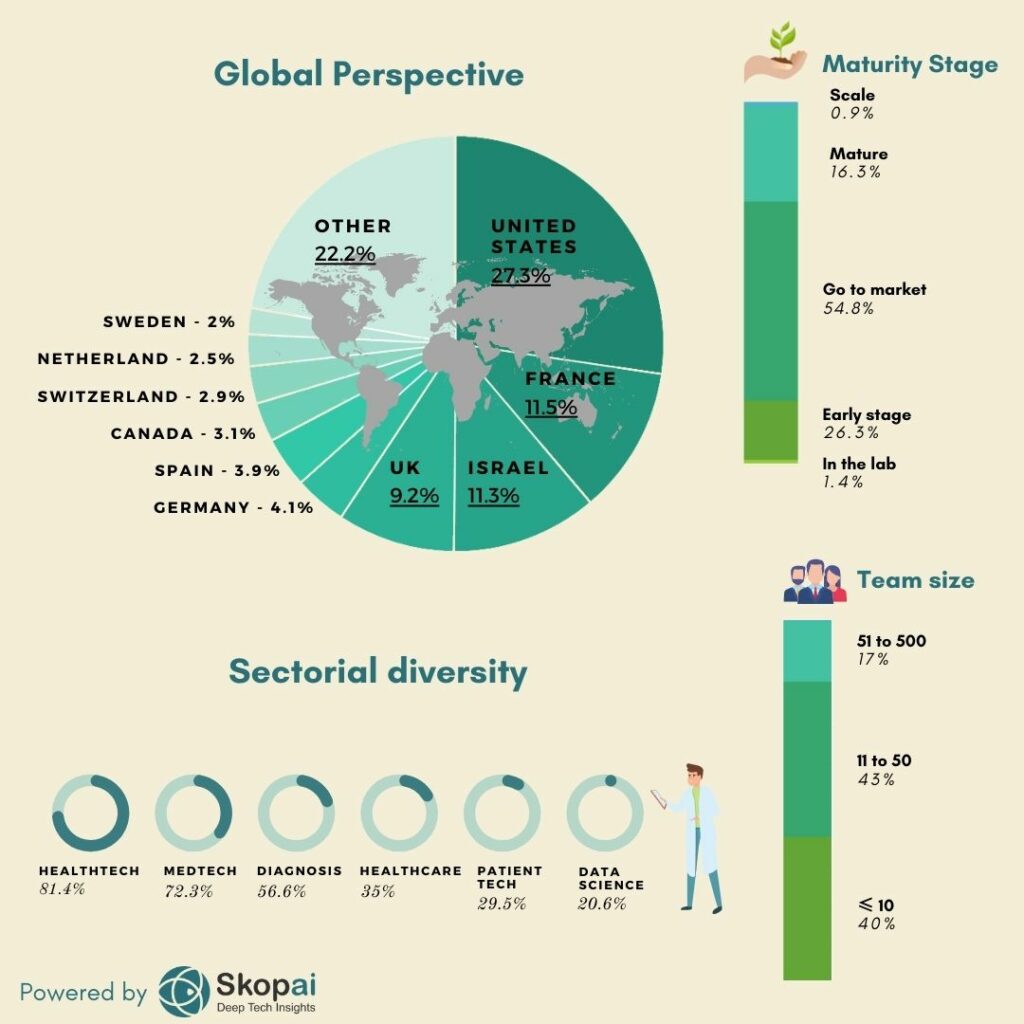Today is International X-ray Day around the world and it’s the good moment to talk about how AI can help medical imaging companies.
The choice of 8 November is no coincidence, as it was on this day in 1895 that Wilhelm Conrad Röntgen discovered the existence of X-rays.
Medical imaging is one of the most exciting and evolving medical disciplines in healthcare.
Artificial intelligence could enable patients’ X-rays to be analysed in a faster and more efficient way. Technological research in this area is extremely active as AI could help medical imaging companies like radiologists diagnose fractures more quickly. What for? To relieve the pressure on hospital emergency rooms by sorting out the examinations received and thus facilitating diagnosis, for example.
Did you know that there are over 700 start-ups specialising in the field of IA coupled with radiology? (based on Skopai plateform).
The United States leads the podium of start-ups in this field (27.3%) but France is not to be outdone as it comes in second place (11.5%), closely followed by Israel (11.3%).
Next come the UK (9.2%), Germany (4.1%) and Spain (3.9%).
Around 170 of these start-ups are at the #earlystage (including 23 in France), 350 at the #Gotomarket stage (27 in France), and a 100th are #mature (7 in France).

This means that opportunities are at hand to develop the ecosystem combining medical imaging and artificial intelligence.
The start-up AZmed has developed software that automatically detects and locates bone fractures in medical images. CE certified for one year, Rayvolve is used by more than 50 medical imaging centres in France.
The solution developed by the French start-up Milvue is capable of avoiding 75% of diagnostic errors, which can be either false negatives or false positives.
Of course, AI will not replace radiologists, but it can facilitate their daily work by prioritising examinations. The radiologist will be less solicited on examinations that will be judged normal.
The reasoned use of technology and algorithms is also the future of health. AI is not the problem, it is the solution. As the radiologist’s co-pilot.

